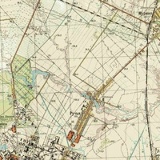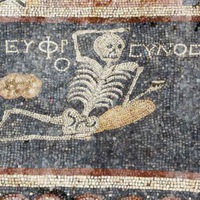Сегодня Я Узнала, что…
Слово «махина», которое громадина, изначально, вообще-то, значило «машина» (и, очевидно, у них общая этимология). А к глаголам «вымахать», «размахнуться», «махам» руками и ногами и празднованию «с размахом» оно не имеет никакого отношения.
Смотрите, какие милые примеры из XVIII века до нас дошли:
«Императрица Анна Иоанновна, вспомня его при отправлении токарных МАХИН изо дворца в Академию наук, определила его асессором на монетной двор, где он монетныя МАХИНЫ в лутчее противу прежняго состояние привел». [А. А. Нартов. Рассказы о Петре Великом (1785-1786)]
«Но человек, не будучи МАХИНОЮ и игрою посторонних сил, но свободно действующее существо, […] нередко с подобными себе вместо вожделенного союза производит раздор, несогласие и в ров погибели оных низводит…» [А. М. Брянцев. Слово о связи вещей во вселенной... говоренное... июня 30 дня 1790 года (1790)]
«Чем МАХИНА простее, чем менше в ней пружин, […] тем она совершеннее». [А. Н. Радищев. Опыт о законодавстве (1782-1789)]
И из-за того, что частенько к этому слову добавляли прилагательное, обозначающее большую величину, идея огромности и громадности постепенно привязалась к этому слову, а потом и выместила первоначальное значение. Однако вот еще пара примеров (Радищев, Карамзин), где «махина» еще «машина», но уже большая и огого.
«Государство есть великая махина, коея цель есть блаженство граждан». [А. Н. Радищев. Опыт о законодавстве (1782-1789)]
«Только в одних самодержавных государствах видим сии легкие, быстрые переходы от зла к добру: ибо все зависит от воли самодержца, который, подобно искусному механику, движением перста дает ход громадам, вращает махину неизмеримую и влечет ею миллионы ко благу или бедствию». [Н. М. Карамзин. История государства Российского: Том 8 (1815-1820)]
Примеры накопаны из НКРЯ. А за информацию спасибо книге «Два века в двадцати словах». Сама бы я не догадалась.
http://german242.com/w/strasser_rohde/leo_fusee.jpg
Слово «махина», которое громадина, изначально, вообще-то, значило «машина» (и, очевидно, у них общая этимология). А к глаголам «вымахать», «размахнуться», «махам» руками и ногами и празднованию «с размахом» оно не имеет никакого отношения.
Смотрите, какие милые примеры из XVIII века до нас дошли:
«Императрица Анна Иоанновна, вспомня его при отправлении токарных МАХИН изо дворца в Академию наук, определила его асессором на монетной двор, где он монетныя МАХИНЫ в лутчее противу прежняго состояние привел». [А. А. Нартов. Рассказы о Петре Великом (1785-1786)]
«Но человек, не будучи МАХИНОЮ и игрою посторонних сил, но свободно действующее существо, […] нередко с подобными себе вместо вожделенного союза производит раздор, несогласие и в ров погибели оных низводит…» [А. М. Брянцев. Слово о связи вещей во вселенной... говоренное... июня 30 дня 1790 года (1790)]
«Чем МАХИНА простее, чем менше в ней пружин, […] тем она совершеннее». [А. Н. Радищев. Опыт о законодавстве (1782-1789)]
И из-за того, что частенько к этому слову добавляли прилагательное, обозначающее большую величину, идея огромности и громадности постепенно привязалась к этому слову, а потом и выместила первоначальное значение. Однако вот еще пара примеров (Радищев, Карамзин), где «махина» еще «машина», но уже большая и огого.
«Государство есть великая махина, коея цель есть блаженство граждан». [А. Н. Радищев. Опыт о законодавстве (1782-1789)]
«Только в одних самодержавных государствах видим сии легкие, быстрые переходы от зла к добру: ибо все зависит от воли самодержца, который, подобно искусному механику, движением перста дает ход громадам, вращает махину неизмеримую и влечет ею миллионы ко благу или бедствию». [Н. М. Карамзин. История государства Российского: Том 8 (1815-1820)]
Примеры накопаны из НКРЯ. А за информацию спасибо книге «Два века в двадцати словах». Сама бы я не догадалась.
http://german242.com/w/strasser_rohde/leo_fusee.jpg
Today I Learned that ...
The word "Makhina", which is a hulk, originally, actually, meant "car" (and, obviously, they have a common etymology). And it has nothing to do with the verbs “wipe out”, “swing”, “swing” hands and legs, and celebrate “with a swing”.
See what cute examples from the XVIII century have survived:
"The Empress Anna Ioannovna, remembering him when sending the turning Makhin from the palace to the Academy of Sciences, identified him as an assessor at the mint, where he put the monetary Makhins in the same way as before." [BUT. A. Nartov. Stories about Peter the Great (1785-1786)]
“But a person, not being MAKHINOY and a game of extraneous forces, but a freely acting being, [...] often with self-similar instead of a desired union produces discord, disagreement and reduces death into the moat of death ...” [A. M. Bryantsev. A word about the connection of things in the universe ... spoken ... June 30th day of 1790 (1790)]
"The simpler MAHINA is, the less springs it has, [...] the more perfect it is." [BUT. N. Radishchev. Legislation Experience (1782-1789)]
And because of the fact that an adjective, denoting a large quantity, was often added to this word, the idea of vastness and immensity gradually became attached to this word, and then it removed the original meaning. However, here are a couple of examples (Radishchev, Karamzin), where the “machine” is still a “machine”, but already big and ogogo.
"The state is a great colossus, the goal is the bliss of the citizens." [BUT. N. Radishchev. Legislation Experience (1782-1789)]
"Only in some autocratic states are these light, rapid transitions from evil to good: for everything depends on the will of the autocrat, who, like skillful mechanics, moves his fingers in the masses, rotates the immense magnitude and causes millions for good or distress." [N. M. Karamzin. History of the Russian State: Volume 8 (1815-1820)]
Examples are from the NCRF. And for the information thanks to the book "Two Centuries in Twenty Words." I myself would not have guessed.
http://german242.com/w/strasser_rohde/leo_fusee.jpg
The word "Makhina", which is a hulk, originally, actually, meant "car" (and, obviously, they have a common etymology). And it has nothing to do with the verbs “wipe out”, “swing”, “swing” hands and legs, and celebrate “with a swing”.
See what cute examples from the XVIII century have survived:
"The Empress Anna Ioannovna, remembering him when sending the turning Makhin from the palace to the Academy of Sciences, identified him as an assessor at the mint, where he put the monetary Makhins in the same way as before." [BUT. A. Nartov. Stories about Peter the Great (1785-1786)]
“But a person, not being MAKHINOY and a game of extraneous forces, but a freely acting being, [...] often with self-similar instead of a desired union produces discord, disagreement and reduces death into the moat of death ...” [A. M. Bryantsev. A word about the connection of things in the universe ... spoken ... June 30th day of 1790 (1790)]
"The simpler MAHINA is, the less springs it has, [...] the more perfect it is." [BUT. N. Radishchev. Legislation Experience (1782-1789)]
And because of the fact that an adjective, denoting a large quantity, was often added to this word, the idea of vastness and immensity gradually became attached to this word, and then it removed the original meaning. However, here are a couple of examples (Radishchev, Karamzin), where the “machine” is still a “machine”, but already big and ogogo.
"The state is a great colossus, the goal is the bliss of the citizens." [BUT. N. Radishchev. Legislation Experience (1782-1789)]
"Only in some autocratic states are these light, rapid transitions from evil to good: for everything depends on the will of the autocrat, who, like skillful mechanics, moves his fingers in the masses, rotates the immense magnitude and causes millions for good or distress." [N. M. Karamzin. History of the Russian State: Volume 8 (1815-1820)]
Examples are from the NCRF. And for the information thanks to the book "Two Centuries in Twenty Words." I myself would not have guessed.
http://german242.com/w/strasser_rohde/leo_fusee.jpg

У записи 23 лайков,
0 репостов.
0 репостов.
Эту запись оставил(а) на своей стене Полина Оскольская











































